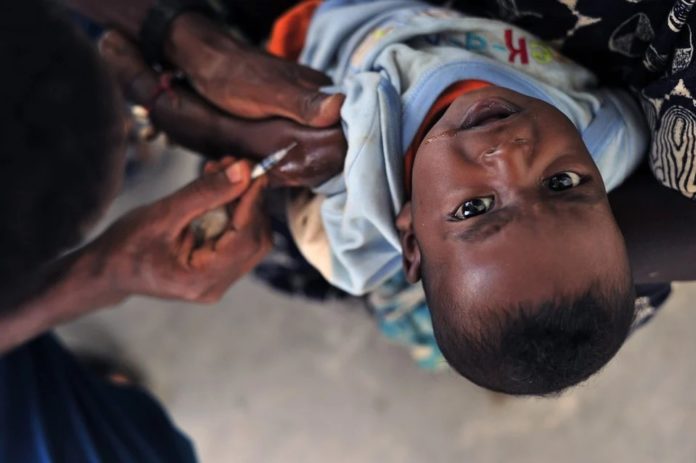New Delhi (NVI): Almost 7 million children could become dangerously undernourished this year, amid growing concerns that the fallout from the pandemic will kill more people than the coronavirus itself, according to a new report.
According to an analysis by UNICEF published in The Lancet, an added 6.7 million children under the age of five could suffer from wasting this year – a life-threatening form of malnutrition that leaves children emaciated.
As a result at least two decades of progress in tackling hunger could be reversed. Even before Covid-19, there were an estimated 47 million children under five who were moderately or severely wasted, were too thin and too weak, not only putting them on the verge of death but also affecting their development, growth and learning for years to come.
Without urgent action, the global number of children suffering from wasting could reach almost 54 million over the course of the year.
The study found that roughly 80 per cent of children who become wasted due to the socio-economic consequences of the pandemic live in sub-Saharan Africa and South Asia, where communities have been hard-hit by stringent lockdown measures.
Now as lockdowns and international trade routes disrupt vital aid supplies, the UN warned that the coronavirus pandemic could have an “intergenerational effect” on the health of millions.
“It’s been seven months since the first COVID-19 cases were reported and it is increasingly clear that the repercussions of the pandemic are causing more harm to children than the disease itself,” said UNICEF Executive Director Henrietta Fore.
Fore added, “Household poverty and food insecurity rates have increased. Essential nutrition services and supply chains have been disrupted. Food prices have soared. As a result, the quality of children’s diets has gone down and malnutrition rates will go up.”
But overall, the prevalence of wasting among young children could increase by 14 per cent across low and middle income countries this year – equating to an additional 10,000 deaths a month.
The models showed that in the worst case scenario, where the pandemic could cause young children to miss 50 percent of their nutritional care and treatment services, nearly 1,80,000 could die this year alone.
In countries already experiencing a humanitarian crisis, the United Nations’ children’s fund has warned that up to 100 percent essential nutrition services could be disrupted.
Earlier this month the United Nations’ under-secretary for humanitarian affairs, Mark Lowlock, said that the pandemic is set to trigger “a series of human tragedies more brutal and destructive than any of the direct health impacts of the virus” in low and middle income countries.
-CHK








